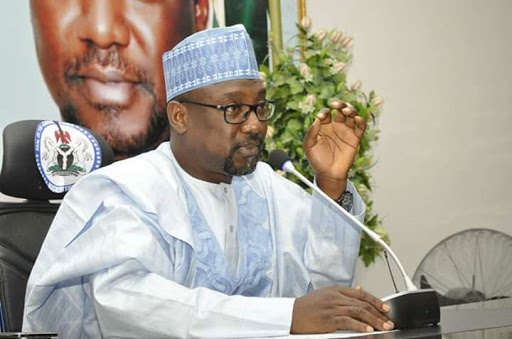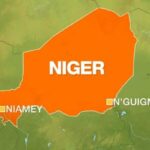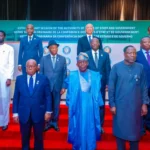This weekend, some Abuja-based friends on the road to Minna to attend a summit had to make a u-turn halfway through the trip. A few other friends rushing to honour a wedding Fatiha there did the same. These cancellations symbolized the serial economic and social opportunities the state capital has lost, especially from the big-spending visitors from Abuja, over the years.
Either on tourism, the hospitality industry or the larger informal economy, the realities and politics of the roads in what’s, unfortunately, Nigeria’s largest state by landmass have left the place on a dangerous slope. Perhaps our national policymakers are yet to understand the danger of letting a place this size be entirely abandoned or held to ransom by armed and unarmed non-state actors.
- PODCAST: Marriage And Infidelity: Who Cheats More?
- Estimated billing: New customers pay millions, as DisCos flout metering policy
My friend and thousands of others are victims of this low-priority treatment of the state, having suffered from a road closure that shouldn’t have lasted this long if Niger state were of interest to the federal government. The state has been held to ransom, and this time it isn’t the RPG-wielding cowards preying on vulnerable schoolchildren to shatter what’s left of the humanity there. On the surface, the story is that the state has been shut down by heavy-duty truck and tanker drivers who are rebelling against the state government’s restrictions on their movements across roads under construction or rehabilitation. But it’s much worse than that.
The anger from both sides is predictable. Only that the economic implication for a state with limited economic life is telling. For the past six years, the outrage over the state of the roads in Niger state has not only sustained bitter laments by residents and motorists in the media but inspired delegations of some of the state’s most powerful political leaders and traditional rulers to visit Abuja and plead with the federal government to intervene. These delegations were led by Governor Abubakar Sani Bello himself and joined by former Governor Muazu Babangida Aliyu and the state’s federal lawmakers. Alarming. This had to be done because even the road that connected Abuja to Minna through Suleja, a federal government responsibility, had been a car-wrecking deathtrap.
The pace at which Suleja – Minna road was window-dressed after about five years of massive lobbying suggested that Abuja isn’t fluent in the language of such diplomacy spoken from Minna. In 2018, about a few months to the general elections, Buhari appeared in Niger state and promised the people a functional Baro Baro in about three months, and praised their support for his electoral journeys even when he was a political underdog. This failed promise hasn’t only scandalized the president’s apologists in the state, it’s further emphasized the second-class status of Niger state in Buhari’s book.
The earlier signs of this seeming negligence were the cold response to Niger’s political elite who lobbied to have the operations of the Abuja airport relocated to Minna when the Nnamdi Azikwe airport was temporarily shut down for repairs and, more tellingly, the junior ministerial slots always allotted to representatives of the state. The reward for the state’s block-voting of, and uncritical support for, President Buhari has been persistent disdain for the people and disinterest in their sufferings.
But Buhari can’t afford to look away from this manifesting anarchy in the state, especially because it was triggered by his refusal to fulfil a promise. Last year, when the state government doubled up on fixing Bida – Minna road, a Trunk “B” road, its decision to prevent heavy-duty vehicles from plying the road led to the closure of the road in protest. Abuja intervened then and promised to fix the Lambata-Lapai-Bida road, which was similarly a layer of craters.
Since the state’s reason for barring heavy-duty vehicles from Bida – Minna road amidst rehabilitation is to prevent consequent engineering havocs, the most logical explanation has to be why the alternative Lambata – Lapai – Bida road has not been window-dressed for use. The elephant in this room, again, is the curious silence from Abuja.
The protesting truck and tanker drivers—through the spokesman of Petroleum Tanker Drivers Association, Alhassan Salihu—have spelt out their only condition for ending the roadblocks: reopening of Bida – Minna road. The problem is, the state doesn’t seem to be bluffing about its restrictions. In a statement signed by the Commissioner for Information, Mohammed Sani Idris, the state government bellowed out that reopening the road was “not an option for now” and heaved the blame on the federal government.
“As it stands today,” the commissioner said, “….the entire roads in Niger State are suffering because of these heavy-duty vehicles. Only a few months ago these same vehicles completely destroyed the Minna-Zungeru Road, they’ve also destroyed the Bida-Zungeru Road and are now looking to destroy the work ongoing on Minna-Bida Road (sic.) The state government will not allow that.”
As much as I sympathize with the protesting drivers, the state government has a valid reason for restricting heavy-duty vehicles. Even in the recent memory of the state, and under this government, trucks and tankers frustrated rehabilitations of Suleja — Minna road and with the state government shouldering the responsibilities. The heavy traffic of trucks and tankers across the rehabilitated roads have led to the waste of hundreds of millions, and so the resort to rerouting the traffic is an economic decision.
But this is one deadlock Abuja can’t afford to ignore. It owes the people of Niger state an explanation and an apology for being held to ransom this long. A state hosting the residences of two former Presidents and several powerful military and political overlords has enough influence to draw Abuja’s attention to being taken for granted and subjected to a series of false promises. But that response isn’t forthcoming is scary.
Whatever one thinks of Governor Sani Bello, his position on the roadblock is a practical response to the treatment of the state. Whether Baro Port or Lambata – Bida road, these reads are the economic arteries of the state and exactly what have kept prized assets like Gurara Fall under-explored. But this is also a lesson for the state’s political elite and the block-voting masses to lean away from conservative attachment to Abuja and embark on bargaining the development they deserve.

 Join Daily Trust WhatsApp Community For Quick Access To News and Happenings Around You.
Join Daily Trust WhatsApp Community For Quick Access To News and Happenings Around You.


